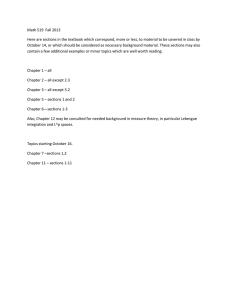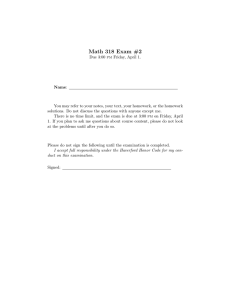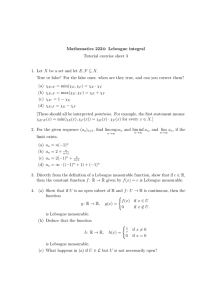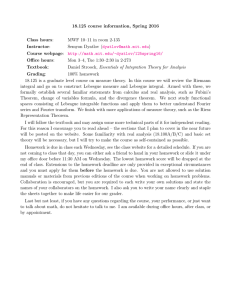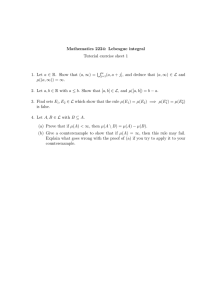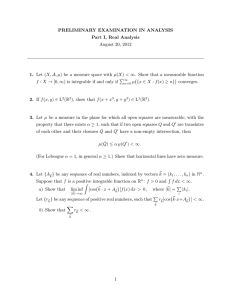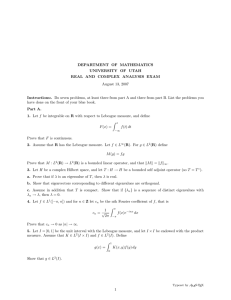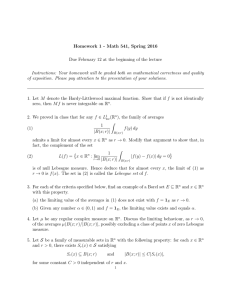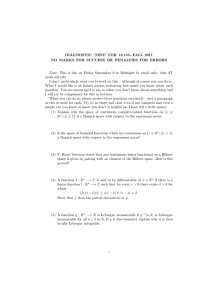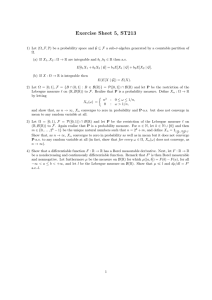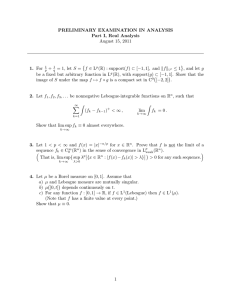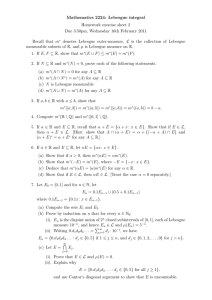Ph.D. Comprehensive Exam: Real Analysis August 2010
advertisement
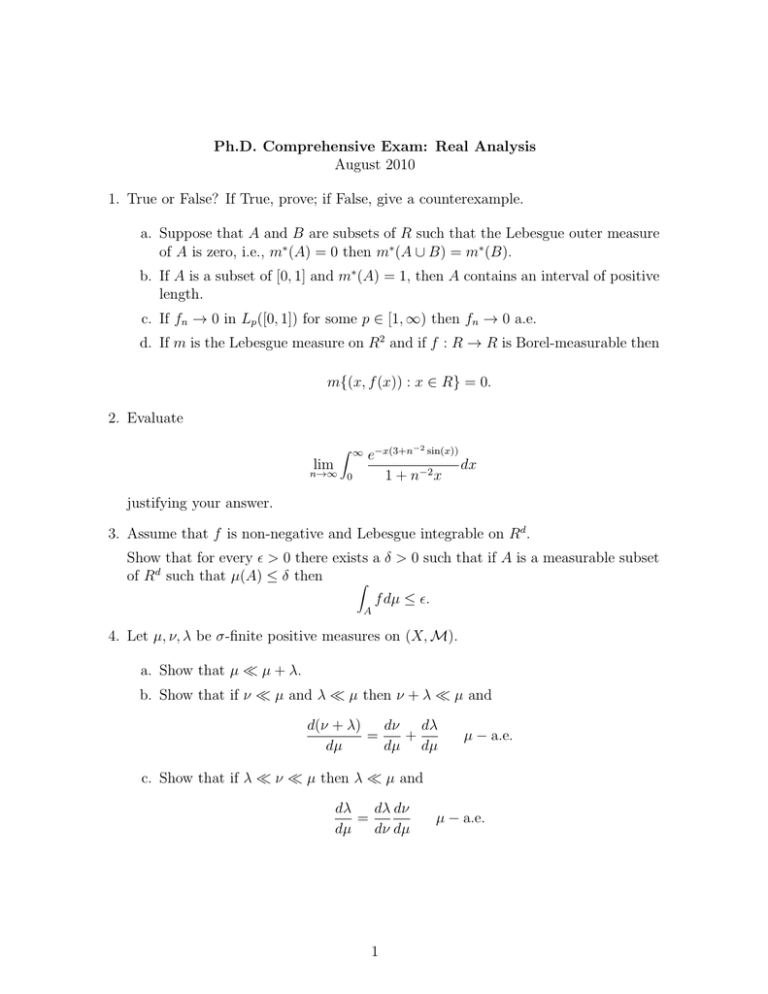
Ph.D. Comprehensive Exam: Real Analysis
August 2010
1. True or False? If True, prove; if False, give a counterexample.
a. Suppose that A and B are subsets of R such that the Lebesgue outer measure
of A is zero, i.e., m∗ (A) = 0 then m∗ (A ∪ B) = m∗ (B).
b. If A is a subset of [0, 1] and m∗ (A) = 1, then A contains an interval of positive
length.
c. If fn → 0 in Lp ([0, 1]) for some p ∈ [1, ∞) then fn → 0 a.e.
d. If m is the Lebesgue measure on R2 and if f : R → R is Borel-measurable then
m{(x, f (x)) : x ∈ R} = 0.
2. Evaluate
lim
Z ∞ −x(3+n−2 sin(x))
e
1 + n−2 x
n→∞ 0
dx
justifying your answer.
3. Assume that f is non-negative and Lebesgue integrable on Rd .
Show that for every > 0 there exists a δ > 0 such that if A is a measurable subset
of Rd such that µ(A) ≤ δ then
Z
f dµ ≤ .
A
4. Let µ, ν, λ be σ-finite positive measures on (X, M).
a. Show that µ µ + λ.
b. Show that if ν µ and λ µ then ν + λ µ and
d(ν + λ)
dν dλ
=
+
dµ
dµ dµ
µ − a.e.
c. Show that if λ ν µ then λ µ and
dλ
dλ dν
=
dµ
dν dµ
1
µ − a.e.
